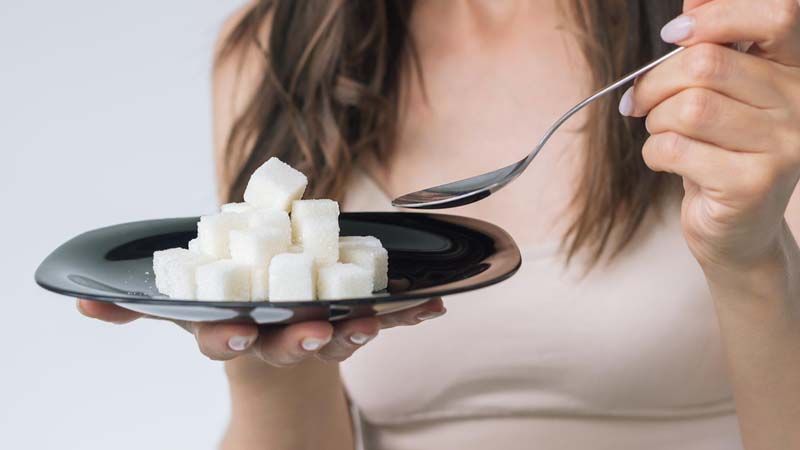What Is A Dairy-Free Diet?
- 9 months ago
More and more people are saying no to dairy products for various reasons. A dairy-free diet means cutting out products like milk, cheese, and yogurt. People do this for different reasons, like health issues or concerns about animals.
Dairy products have long been a staple in diets, providing nutrients like calcium & vitamin D. However, some people choose to follow a dairy-free diet for various reasons, including lactose intolerance, dairy allergies, ethical concerns, or personal preferences.
One of the primary motivations behind adopting a dairy-free lifestyle is lactose intolerance, a common condition where the body lacks the enzyme lactase needed to digest lactose, the sugar found in milk. This intolerance can lead to digestive issues such as bloating, gas, and diarrhea, making the avoidance of dairy products essential for comfort and well-being.
What Can You Eat?
One of the first questions people ask when considering a dairy-free diet is, "What can I eat?" The good news is that dairy products can be replaced with various delicious and healthy options. Some options are:
- Non-Dairy Milk: There are many plant-based milk available, such as almond milk, soy milk, oat milk, and coconut milk. These kinds of milk can be used instead of cow's milk in recipes and are fortified with calcium and vitamin D.
- Dairy-Free Cheese: While it may not taste exactly like traditional cheese, dairy-free cheese can be a satisfying alternative. It is made from various plant-based ingredients like nuts, soy, or tapioca starch.
- Dairy-Free Yogurt: Similar to dairy-free cheese, yogurt made from coconut, almond, or soy milk is a great alternative. These yogurts are fortified with probiotics, similar to traditional yogurt.
- Dairy-Free Butter: Margarine and spreads made from vegetable oils are popular dairy-free alternatives to butter. Look for options that are labeled as dairy-free or vegan.
- Other Dairy-Free Foods: Many foods are naturally dairy-free, such as fruits, vegetables, grains, beans, nuts, and seeds. These foods can form the basis of a healthy dairy-free diet.

What You Need to Know?
When switching to a dairy-free diet, there are a few things to keep in mind to ensure you're meeting your nutritional needs:
- Calcium: Dairy products are a significant source of calcium, so it's essential to include other calcium-rich foods in your diet. Some good options include leafy green vegetables, tofu, almonds, and fortified non-dairy milks.
- Vitamin D: Vitamin D is necessary for calcium absorption and bone health. While dairy products are fortified with vitamin D, you can also get it from sunlight, mushrooms, and fortified foods.
- Protein: Dairy products are a good source of protein, but there are plenty of plant-based sources of protein, such as beans, lentils, tofu, and quinoa.
- B12: Vitamin B12 is primarily found in animal products, so if you're following a strict dairy-free diet, you may need supplements or consume fortified foods.
Foods That Replace the Nutrients in Milk
If you're concerned about getting enough nutrients typically found in milk, there are plenty of dairy-free alternatives:
- Calcium: Green leafy vegetables like kale, collard greens, and broccoli are excellent sources of calcium. Other options include fortified non-dairy milk, tofu, almonds, and sesame seeds.
- Vitamin D: Besides sunlight, you can get vitamin D from fortified foods like non-dairy kinds of milk, orange juice, and cereals. Some mushrooms are also a natural source of vitamin D.
- Protein: Plant-based sources of protein include beans, lentils, chickpeas, tofu, tempeh, and edamame.
- Vitamin B12: Fortified foods like non-dairy kinds of milk, cereals, and nutritional yeast are good sources of vitamin B12 for those on a dairy-free diet.
Misconceptions About Dairy-Free Diets
- They Lack Calcium: Dairy-free diets can still be rich in calcium from sources like leafy greens, almonds, and fortified plant-based milk.
- They Are Nutritionally Deficient: A well-planned dairy-free diet can provide all necessary nutrients, not just for lactose intolerant individuals.
- They Are More Expensive: While some dairy alternatives can be costly, there are budget-friendly options like store-brand plant-based milk.
- They Are Just for Lactose Intolerance: Some choose dairy-free for ethical, environmental, or health reasons beyond lactose intolerance.
- They Are Restrictive: Dairy-free options are plentiful, reducing feelings of restriction.
Also Check: Are Acne & Dairy Linked?
Sample Diet Plan
|
Meal |
Menu |
Quantity |
|
Early Morning |
Lukewarm Jeera Water + Flax Seeds |
1 Glass 1 Teaspoon |
|
Breakfast |
Vegetable Upma/ Poha/ Oats/ Vegetable Idli With Coconut Chutney + Almonds, Walnuts + Apple |
1 Bowl / 2 No. 4 Each 1 Whole |
|
Mid-Morning Snack |
Mixed Chickpea Salad + Coconut Water |
1 Bowl + 1 Glass |
|
Lunch |
Vegetable Salad (With Olive Oil Dressing) + Dal With Spinach + Sauteed Seasonal Vegetable + Roti (Multigrain Flour) |
1 Bowl 1 Bowl 1 Cup 2-3 No. |
|
Mid-Evening Snack |
Herbal Tea/ Coconut Water + Roasted Grains / Fox Nuts/ Nut Mix |
1 Cup/ 1 Glass Handful |
|
Dinner |
Mixed Vegetable/ Chicken Soup + Dal + Seasonal Vegetable + Roti (Multigrain Flour) Or Sambhar/ Rasam + Ragi Idli / Brown Rice |
1 Bowl 1 Cup 1 Cup 2 No.
1 Cup 2 No./ 1 Cup |
|
Post Dinner |
Turmeric Tea |
1 Cup |
In Conclusion
A dairy-free diet can be satisfying and nutritious with careful planning and attention to meeting your body's needs. By exploring the abundance of dairy-free alternatives and incorporating nutrient-rich foods into your meals, you can enjoy a delicious and healthful way of eating that works for you. Whether you're lactose intolerant, vegan, or simply curious, the dairy-free lifestyle offers a world of culinary possibilities waiting to be discovered.









